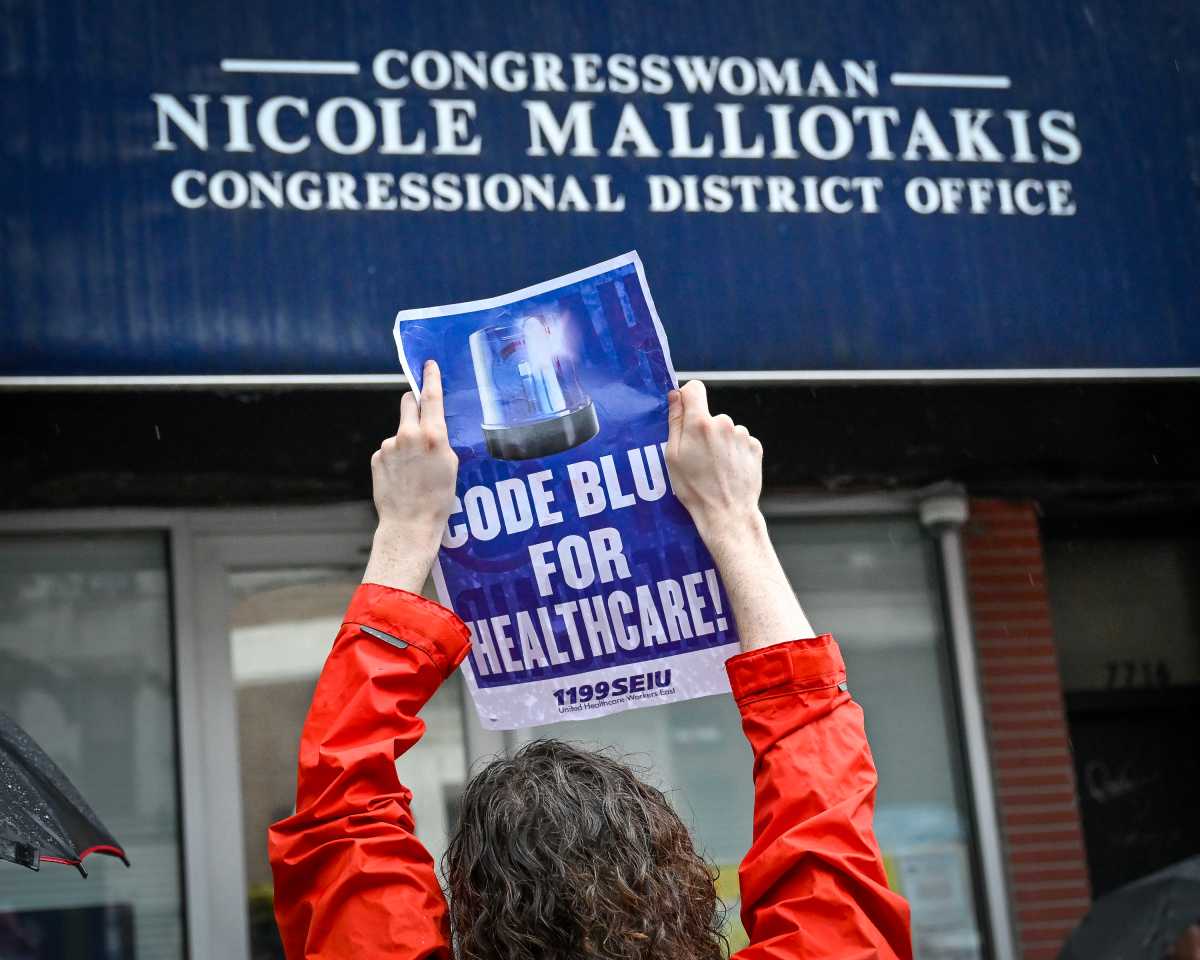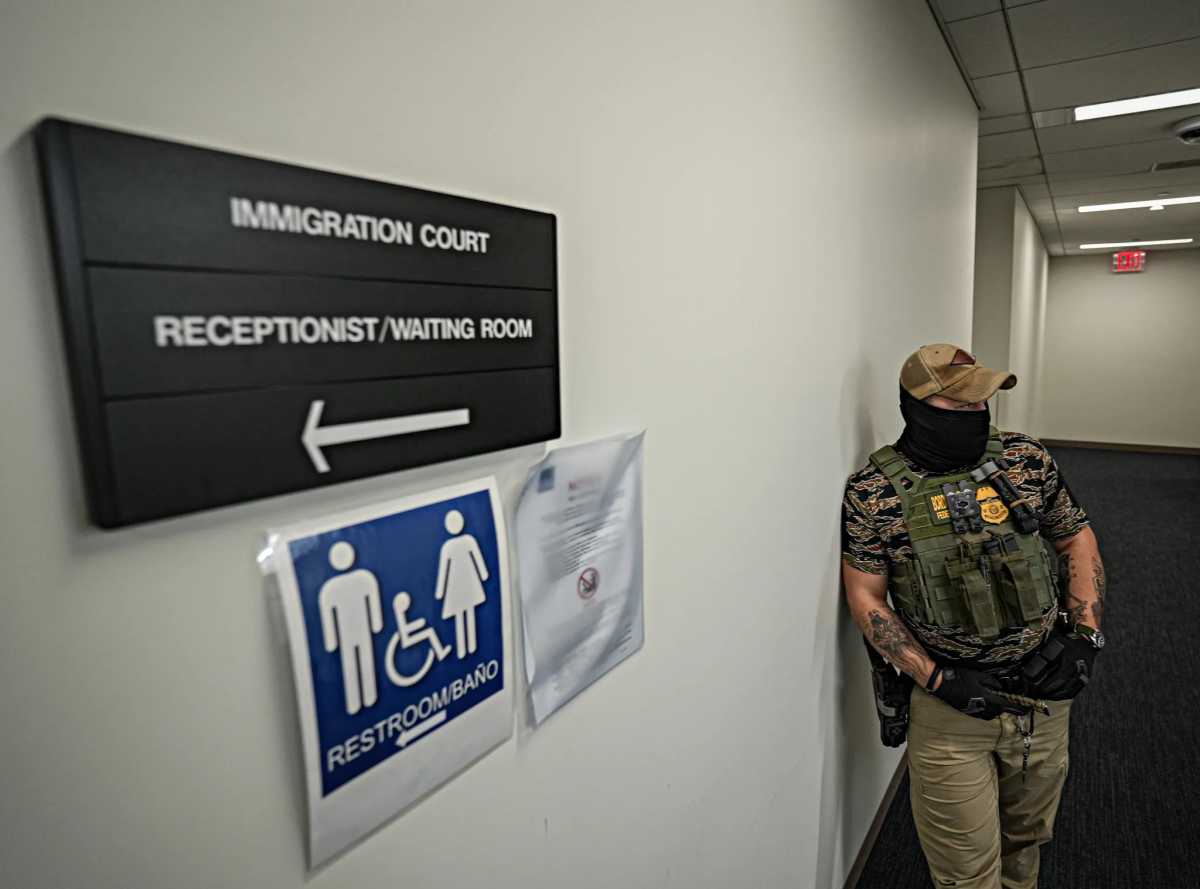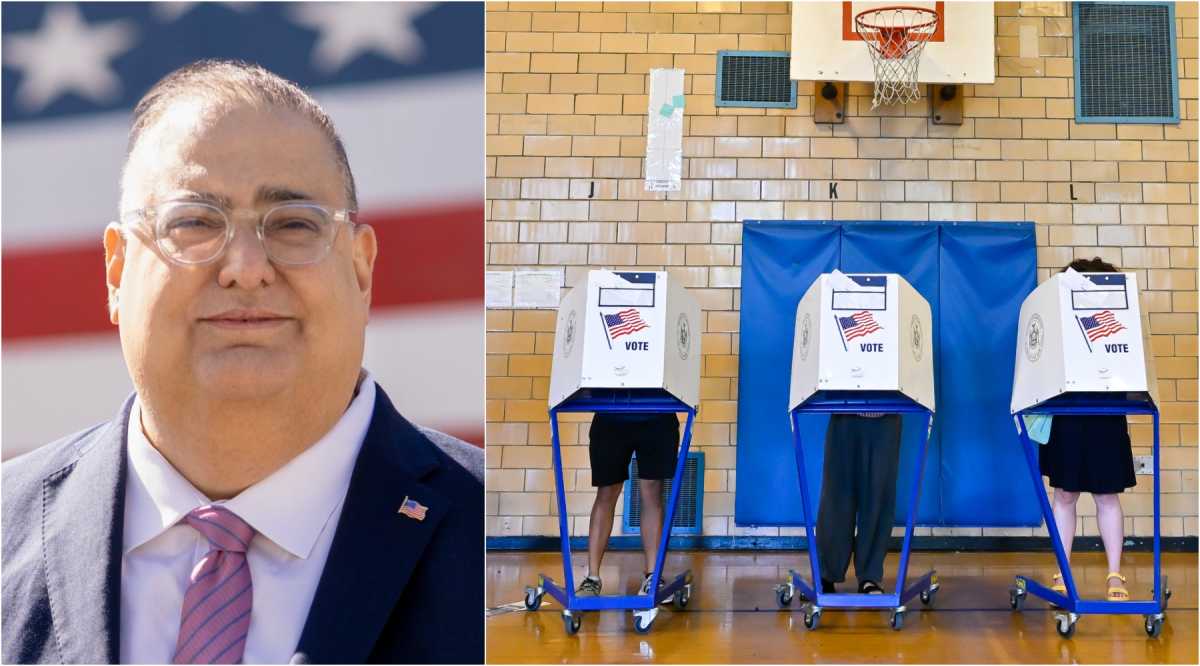On a cold and rainy Thursday concerned constituents filed into the Brooklyn Public Library basement at Grand Army Plaza to learn about Congress’s recent impeachment inquiries into President Donald Trump.
Hosted by Rep. Yvette Clarke (D-Brownsville, Crown Heights, East Flatbush, Flatbush, Kensington, Midwood, Prospect Heights, Prospect Lefferts Gardens, Sheepshead Bay, Park Slope), the town hall featured a panel discussion, updates on the latest news, and answered questions from constituents.
For the most part, this was a receptive crowd. Throughout, constituents nodded along to Clarke and others as the Democrats plan to formally issue the articles of impeachment was outlined. There were only one or two instances of audience members yelling out when Trump’s name was mentioned. Once, an audience member loudly said “that’s right” when a panel member said that Trump should be considered innocent until proven guilty. Other than that, it was a peaceful occasion.
Clarke made it a point to say that going forward with the impeachment proceedings was not something that anyone in Congress wanted to do, but that they had to do it out of an obligation to their oath of office to uphold the law. Mentioning multiple times that it was part of their job, she laid out the alleged abuse of power and potential crimes that Trump committed in his talk with the Ukrainian President Volodymyr Zelensky on July 25.
 “In Congress, we have a constitutional obligation to take the information we’ve received and unpack it–to get as many witnesses to share what they know because I believe there has been a very serious breach of the constitution of the United States by President Trump. Donald Trump has abused his power and betrayed his oath office,” said Clarke.
“In Congress, we have a constitutional obligation to take the information we’ve received and unpack it–to get as many witnesses to share what they know because I believe there has been a very serious breach of the constitution of the United States by President Trump. Donald Trump has abused his power and betrayed his oath office,” said Clarke.
Panelists included former Rep. Elizabeth Holtzman, Alfreda Robinson, Esq., Associate Dean of George Washington Law, Donna Lieberman, Executive Director of the New York Civil Liberties Union and Professor Natalie Gomez-Velez of CUNY Law School. Each panelist used their own experience and expertise to offer their perspective on how the impeachment proceedings in Congress and how a trial in the Senate could move forward.
Holtzman brought her experience as a member of the House Judiciary Committee who voted to impeach President Richard Nixon to the forefront of the conversation. She drew parallels to the offenses allegedly committed and noted that it was a “threat” to our democracy. She dismissed allegations against Hunter-Biden and attacks on the credibility and identity of the whistleblower as distractions from the story of Trump’s alleged abuse of power.
Robinson brought to the table a legal approach. She laid out the history of the phone call, including the context of the Congressionally-approved Ukrainian military aid that Trump allegedly used as leverage in a quid pro quo with Zelensky. She also stressed that Zelensky was allegedly pressured to hold a press conference announcing an investigation into Hunter Biden, who has consistently lead in most national polls and seems like a candidate likely to take on Trump in 2020.
Lieberman took a slightly different approach. Drawing on her background in the ACLU, she said that Trump should be impeached for other reasons, including free speech and his attacks on the press. She also laid out the history of high crimes and misdemeanors as traditionally used to describe offenses against the state.
Gomez-Velez took a much more studious approach to the definition of impeachment, going through the mechanisms and processes in Congress. Then she went through the Senators acting as jury judging the President as though it were a court of Law. She stressed, importantly, that these proceedings should be based on facts over politics, while admitting that there was a political element to the whole process. She outlined the articles of the constitution that deal with impeachment and how Congress is acting in accordance with the constitution.
Finally, Clarke led the panel through a question-and-answer session where audience members were offered the opportunity to ask questions. There were many questions dealing with the definition of quid pro quo and the difference between bribery and extortion. It was also asked how the Democratic-lead congress expected the Republican-lead Senate to even vote on the articles of impeachment.
While Clarke and the panel didn’t have any definitive answers to how the Senate would vote, they were confident that once the facts were looked at, that justice would be served.










